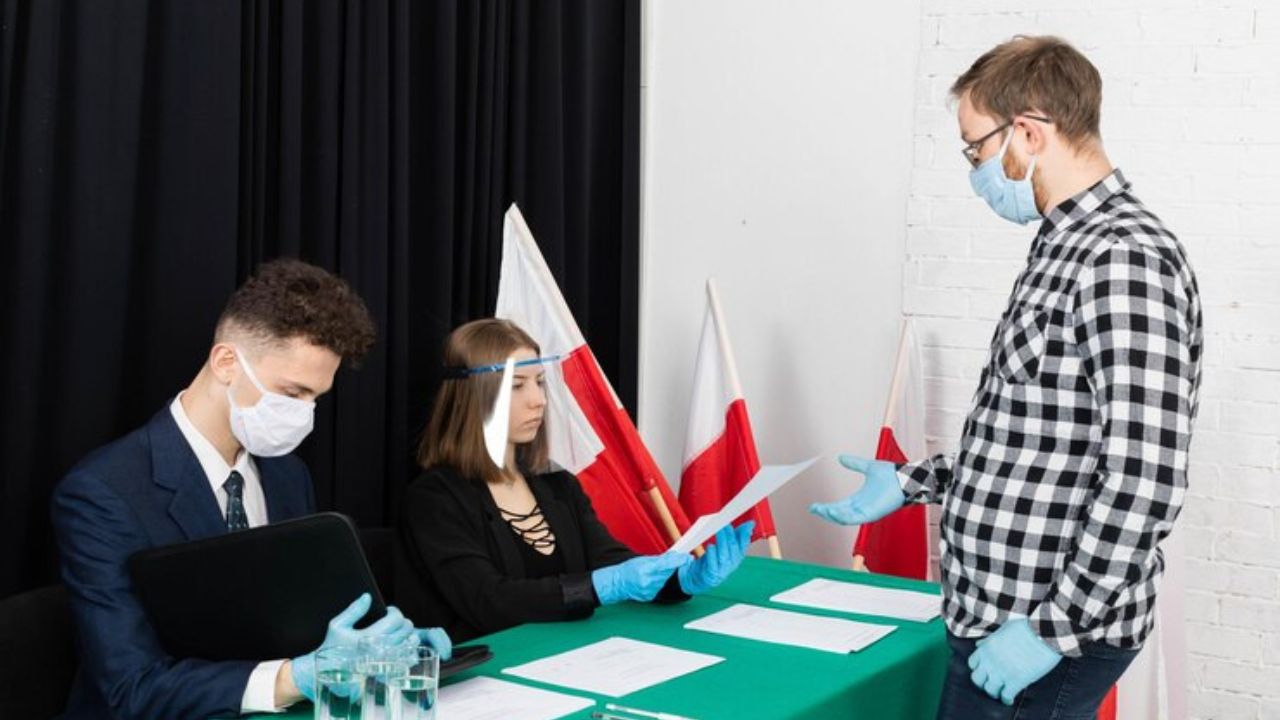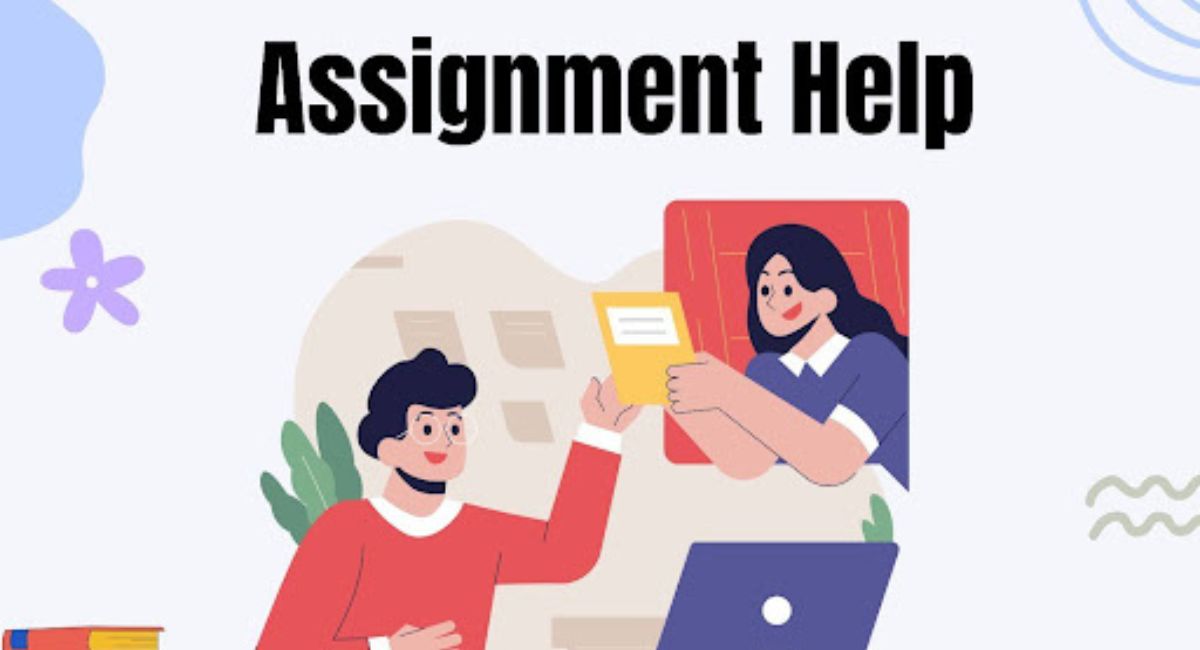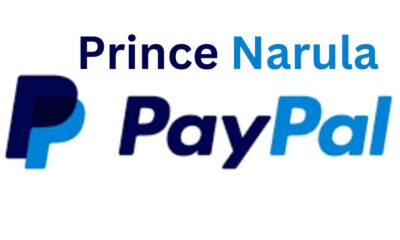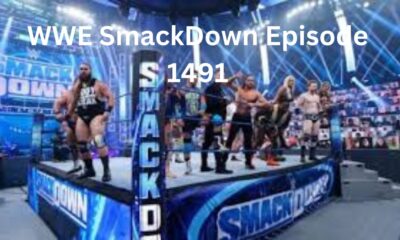EDUCATION
Unleashing Innovation: Highlights from the p72 National Pitch Competition

Innovation is the lifeblood of progress, and nothing embodies this spirit quite like the p72 National Pitch Competition. Each year, aspiring entrepreneurs gather to showcase their groundbreaking ideas in a dynamic environment that fosters creativity and collaboration. The competition serves as a launching pad for startups looking to make their mark on the world. It’s more than just a contest; it’s an opportunity for visionary thinkers to connect, inspire, and disrupt traditional markets. This year was no exception, with an array of pitches that illuminated the path forward for innovation across various sectors. Let’s dive into some highlights from this remarkable event and explore how it continues to transform the entrepreneurial landscape.
The Purpose of the Competition: Fostering Innovation and Entrepreneurship
The p72 National Pitch Competition serves a vital purpose in today’s fast-paced business landscape. It aims to nurture innovative ideas and transform them into viable startups.
By providing a platform for aspiring entrepreneurs, the competition encourages creativity and original thinking. Participants showcase their unique concepts while receiving valuable feedback from industry leaders.
This event doesn’t just spotlight new ventures; it creates an ecosystem where collaboration thrives. Entrepreneurs find mentors, investors make connections, and knowledge is exchanged freely.
Fostering innovation means taking risks, embracing failure, and learning continuously. The p72 National Pitch Competition embodies these values by empowering individuals with the tools they need to succeed.
It ignites passion among participants while inspiring future generations of innovators to bring bold ideas to life. Through this initiative, entrepreneurship becomes more accessible and impactful than ever before.
Key Highlights from the 2021 Competition
The 2021 p72 National Pitch Competition was a showcase of creativity and ambition. Entrepreneurs presented groundbreaking ideas that captivated both the judges and the audience.
One standout pitch focused on sustainable packaging solutions designed to reduce plastic waste. The team’s innovative approach offered a game-changing alternative, sparking excitement among eco-conscious investors.
Another notable presentation revolved around an app aimed at enhancing mental health support for young adults. Its unique features promised to bridge gaps in accessibility, making mental wellness resources more available than ever.
The atmosphere buzzed with inspiration as participants networked enthusiastically between pitches. Many forged connections that could lead to future collaborations or funding opportunities.
Throughout the event, innovation thrived, highlighting what is possible when passionate minds come together under one roof. Each idea resonated differently but shared a common thread: the drive to make a difference in today’s world.
A. Winning Pitches and their Innovative Ideas
The p72 National Pitch Competition showcased an array of groundbreaking ideas that captivated judges and audiences alike. Each winning pitch demonstrated a unique approach to solving real-world problems.
One standout was the eco-friendly packaging startup, which introduced biodegradable materials that could replace traditional plastics. Their innovative method not only reduces waste but also promotes sustainability in everyday products.
Another impressive pitch came from a tech-driven health platform. This solution utilizes AI to personalize treatment plans for patients, providing tailored care based on individual needs.
These pitches exemplify how creativity can intersect with technology to drive change. The enthusiasm of these entrepreneurs is contagious, inspiring others to think outside the box and explore uncharted territories in their respective industries.
B. Panel of Judges and Guest Speakers
The p72 National Pitch Competition attracts an impressive lineup of judges and guest speakers, all of whom are luminaries in their respective fields. This year was no exception. Industry experts brought a wealth of experience to the table.
Judges included seasoned entrepreneurs, venture capitalists, and corporate leaders who have successfully navigated the startup landscape. Their insights provided invaluable feedback to participants.
Guest speakers shared inspiring stories that resonated deeply with everyone present. They spoke about overcoming obstacles and seizing opportunities in uncertain times.
Each interaction offered unique perspectives on innovation and entrepreneurship. The dynamic discussions not only enriched the competition but also fostered connections among aspiring founders looking for guidance from those who have walked similar paths.
This blend of expertise created an electrifying atmosphere where ideas could thrive and evolve into actionable plans for success.
C. Impact on Participants and Startups
The p72 National Pitch Competition has made a significant impact on both participants and their startups. For many, it serves as a launching pad for ideas that may have otherwise remained dormant.
Participants gain invaluable exposure to industry experts, mentors, and potential investors. This connection helps them refine their business models and understand market dynamics better.
Startups benefit not just from funding opportunities but also from constructive feedback that shapes their future strategies. The competition creates an ecosystem of support, encouraging collaboration among entrepreneurs.
Moreover, the confidence gained through pitching in front of a live audience is transformative. It empowers founders to articulate their vision clearly—an essential skill in any entrepreneurial journey.
Networking with peers often leads to unexpected partnerships or collaborations that ignite further innovation within the community. The ripple effect extends beyond individual success stories; it fosters an environment ripe for groundbreaking ideas to flourish.
How the p72 National Pitch Competition is Changing the Landscape for Entrepreneurs
The p72 National Pitch Competition is reshaping the entrepreneurial ecosystem. By providing a platform for emerging ideas, it encourages creativity and risk-taking among startups.
Entrepreneurs gain access to invaluable resources, mentorship, and funding opportunities. This support helps them refine their business models while expanding their networks significantly.
Moreover, the competition fosters collaboration between participants from diverse industries. Such interactions often lead to innovative partnerships that might not have occurred otherwise.
In addition, exposure through this event allows startups to showcase their solutions on a national stage. This visibility can attract investors who are eager to discover the next big idea.
As more entrepreneurs participate in events like these, they contribute to an ever-evolving landscape of innovation and technology. The ripple effects extend beyond individual success stories; they inspire future generations of creators and thinkers.
Advice from Successful Participants: Lessons Learned
Successful participants from the p72 National Pitch Competition often emphasize the importance of preparation. Knowing your pitch inside and out can make a significant difference. Confidence shines through when you’re well-prepared.
Networking is another key takeaway. Building relationships with fellow entrepreneurs, judges, and mentors can open doors long after the competition ends.
Feedback is invaluable. Many winners highlight how constructive criticism helped refine their ideas and approach. Listening to others’ perspectives fosters growth in unexpected ways.
Embrace failure as part of the journey. Each setback offers lessons that shape future successes. Persistence combined with adaptability creates a strong foundation for any aspiring entrepreneur navigating today’s landscape.
Future of Innovation
The future of innovation is bright, especially with events like the p72 National Pitch Competition paving the way for aspiring entrepreneurs. As industries evolve and technologies advance, innovators will continue to push boundaries. The ideas showcased at this competition reflect a commitment to tackling contemporary challenges.
Emerging trends indicate that collaboration among startups will be crucial in driving forward-thinking solutions. Participants are not just competing; they are forming networks that foster creativity and support growth.
Moreover, as investment opportunities expand, there’s an increasing willingness from venture capitalists to explore novel concepts. This openness can lead to groundbreaking developments across various sectors.
As we look ahead, it’s clear that competitions like p72 play a vital role in shaping tomorrow’s entrepreneurial landscape. They inspire individuals to dream big while providing them with the resources needed for success. With dedication and ingenuity, the next wave of innovators is ready to make its mark on the world stage.
EDUCATION
How to Write a CV That Will Stand Out to Employers

When entering the job market, one of the most important tools at your disposal is your CV (curriculum vitae). It’s your first opportunity to impress a potential employer, so making it stand out is crucial. Whether you’re applying for your first job, an internship, or a graduate position, crafting a compelling CV can make all the difference.
A well-written CV doesn’t just list your qualifications – it tells your professional story in a way that shows employers why you’re the right fit for the role. In today’s competitive job market, knowing how to write a CV that stands out is essential for success.
If you are suffering from a crisis in workload or multi-jobbing across many applications, then assignment help will guide you to write the ideal CV, so your job application is as capable as your education. In this highly educative guidebook, we shall dissect each and every component of the ideal CV into pieces and also offer you practical advice on how to lead your desired profession.

Why is a CV so significant?
A CV is, of course, an advertisement. It’s your opportunity to market yourself, your skill, your experience, and your potential on a few tight but clear pages. Employers will be reviewing hundreds of CVs, so make yours stand out from the start. An effective CV allows the recruiters an opportunity to familiarise themselves at once with the reasons why you are the most appropriate individual for the job and how you can benefit the organisation.
Key Strengths of a Successful CV:
Explain your professional skill and qualifications.
Emphasizes your experience and success.
Provides evidence of your capability in tangible outcomes by demonstrating what you can produce.
Keeps your interview attitude upbeat by being enthusiastic about your professionalism and personality.
Let us now create a CV that will make you a top employer contender.
Key Ingredients of a Good CV
When you are building your CV to be effective, interesting, and businesslike, you must highlight several key attributes. These must be ranked in priority order and readily available so that potential employers can browse through at ease at first glance.
1. Personal Details and Contact Details
Placing your name, professional title (if any), phone number, and email address at the top of your CV, you may also put in a link for your LinkedIn profile or professional portfolio if needed.
- Name: Type in your full name.
- Phone Number: Update this number.
- Email Address: Type in a business email address (do not type nicknames or personal email addresses that are not professional).
- LinkedIn/Portfolio: If needed, type it in.
Make it concise and formal. Leave out such information as your home address, which is not needed on most contemporary CVs.
2. Personal Statement / CV Summary
Your personal statement or overview should be followed by your contact details. The brief paragraph gives you a chance to introduce yourself and inform potential employers what you can do. Mention your experience, skills, and career aspirations and relate it to the job for which you are applying.
How to Write a Good Personal Statement:
- Make it short: Keep it in 4-5 lines.
- Make it job-specific you are applying for: Describe your skills in the language used in the job you are applying for.
- Call out for positive strengths: Mention your best strengths, perhaps problem-solving ability, leadership ability, or technical ability.
- Avoid cliches: Use vague buzzwords “hard” and “team player” only if you can demonstrate them in a practical example.
For example, if you’re applying for a marketing role, your personal statement could highlight your experience with campaigns, digital marketing, and data analysis.
3. Education and Qualifications
Your education section should describe your education in reverse chronological order, beginning with the most recent qualification. You should include the name of the school of education, study duration, and degree or qualification completed. Graduates can also include major modules or areas of study major.
As a student, include your date of graduation and courses or study projects that would appeal to the employer.
What to Include:
- Name of institution (or secondary school if you are fairly new in the profession)
- Title of degree (e.g., BS in Business Administration)
- Dates attended
- Most important accomplishments or most important coursework
If it seems overwhelming to balance studying and having your CV just so, assignment help will keep you churning out assignments on time while you go on and focus on career hunting.
4. Professional Experience
The work experience section is your best section in your CV. It is the place where you will outline your work history and demonstrate future employers how your skills in practice can be transferred. List your current job at the top, and add any part-time work, internships, or volunteer posts.
For every job, state:
- Job title: State what job you were doing.
- Company name: Give the company or organisation name.
- Dates of employment: Give your dates of employment.
- Key tasks and outcomes: Outline what you did in the job and any personal projects or outcomes.
Tips for presenting your Experience:
- Begin each bullet with a verb (i.e., managed, created, implemented).
- Put figures on your outcomes wherever appropriate (e.g., “Increased sales by 20%” or “Managed 5-strong team”).
- Highlight prior experience: If you have a series of employments, highlight the most relevant ones to the job you are applying for.
5. Skills Section
Your skills section should be a mix of hard (technical) and soft (people) skills. Ensure that these are career-specific to the career that you are competing for, and don’t use broad statements that you can’t possibly fulfill.
Hard Skills
These are the technical work skills or the know-how to do the job, i.e., computer programming, language, or equipment (e.g., Microsoft Excel, HTML, or data analysis).
Soft Skills:
These are personal qualities that enable you to survive in a workplace, i.e., communication, teamwork, or management.
6. Certifications and Additional Training
If you have any professional development course, training, or certification that is relevant to the job, place it here. It could be workshop certificates, online courses, or any other certificate that makes you qualified for applying for a specific job.
7. Additional Information
– Place here any other information that makes you qualified for the job. This can be:
- Languages spoken: If you are multi-lingual, do not hesitate to include it.
- Volunteer work: Any volunteer work that is relevant to the job, include here.
- Awards or honors: Any awards or honors you have won, include here.
8. References
References are not always required to be included on your CV, but it’s a good idea to have a list of individuals who can vouch for your skills and personality. This will usually be an ex-employer, mentor, or academic supervisor.
Presenting Your CV
Presentation is as crucial as the content. A hard-to-read CV will lose an employer’s interest in no time. Follow these presentation guidelines:
Use a clear, professional design:
- Don’t use fancy colours or fonts. Use traditional fonts such as Arial, Calibri, or Times New Roman.
- Keep it short: Your CV should ideally be 1-2 pages, particularly if you’re just starting out.
- Use bullet points: These make your CV easy to scan and bring out your major accomplishments.
Final Tips to Make Your CV Stand Out
Customize your CV for every application: Don’t have a generic one. Customize your CV to match the job you’re applying for by emphasizing applicable experience and skills.
Proofread thoroughly: A spelling or grammar mistake can make you look amateurish. Carefully proofread your CV before submitting it.
Be truthful: Never overstate or misrepresent your qualifications or experience.
Conclusion: Make the Most Out of Your CV
It is a challenge to produce an exceptional CV for employers, but the reward is more than worth it. By highlighting concise presentation, relevant experience, and job-specific skills, you will make a long-lasting impression on potential employers.
If it’s consuming all your spare time balancing school studies, assignment assistance will provide you with some spare time to devote to making your CV flawless.
For needy students pushing through this stressful but inspirational phase of professional growth, businesses such as Assignment in Need (assignnmentinneed.com) may offer the assistance you need in an attempt to keep up with your school studies and employment searching.
EDUCATION
Why You Should Enroll in a Classical Arabic Course to Understand Ancient Texts

Learning Classical Arabic opens the door to understanding ancient texts, including the Quran, poetry, and historical writings. Enrolling in a Classical Arabic course provides structured learning that helps students grasp the depth and beauty of the language.
Unlike Modern Standard Arabic, Classical Arabic carries the rich vocabulary, grammar, and expressions found in historical literature.
Whether you are a student of Islamic studies, a linguistics enthusiast, or simply someone eager to explore old manuscripts, a Classical Arabic course gives you the foundation to read and comprehend these texts with accuracy.
What is the Classical Arabic Course?
The Classical Arabic Course is a specialized program designed to teach students the fundamentals of the Arabic language as used in the Quran, Hadith, and classical Islamic texts. It focuses on grammar (Nahw), morphology (Sarf), vocabulary, and sentence structure, enabling learners to read, understand, and analyze classical Arabic literature. This course is ideal for those seeking to deepen their comprehension of Islamic scriptures or pursue advanced studies in Islamic sciences.
What Makes a Classical Arabic Course Unique?
A Classical Arabic course differs from other Arabic learning programs because it focuses on the language as it was used centuries ago. It emphasizes grammar, sentence structure, and vocabulary that are no longer commonly spoken but remain essential for reading ancient writings.
Key Features of a Classical Arabic Course:
- Focus on Grammar (Nahw and Sarf) – Understanding the structure of sentences and word formations.
- Reading Classical Texts – Engaging with Quranic verses, Hadith, and poetry.
- Expanding Vocabulary – Learning words and phrases specific to historical writings.
- Understanding Context – Recognizing how words carried different meanings in different eras.
- Mastering Pronunciation – Applying correct pronunciation for reading aloud.
A well-structured Classical Arabic course ensures that students not only learn the language but also develop the ability to analyze and interpret texts with confidence.
Who Should Take a Classical Arabic Course?
Anyone interested in understanding Arabic in its purest form can benefit from a Classical Arabic course. Since this version of the language is primarily used in religious and literary contexts, it attracts students from different backgrounds.
Ideal Students for a Classical Arabic Course:
- Students of Islamic Studies – Those who want to understand the Quran and Hadith in their original form.
- Arabic Literature Enthusiasts – Readers who enjoy poetry and prose from the classical era.
- Linguistics Scholars – Researchers studying the evolution of Arabic.
- Translators and Writers – Professionals working on historical texts and religious scriptures.
- Anyone Interested in Ancient Languages – People fascinated by how language shapes culture and thought.
Enrolling in a Classical Arabic course helps students connect with the richness of Arabic heritage while developing a deeper appreciation for historical writings.
Benefits of Learning Classical Arabic
Studying Classical Arabic is not just about learning a language—it’s about gaining access to centuries of knowledge. A Classical Arabic course provides the tools to explore religious texts, historical accounts, and literary masterpieces.
Why Learning Classical Arabic is Valuable:
- Access to Original Texts – Read the Quran, Hadith, and scholarly works without relying on translations.
- Better Understanding of Islamic Teachings – Study religious texts as they were written.
- Appreciation of Classical Poetry – Enjoy the beauty and rhythm of Arabic poetry.
- Deeper Grasp of Arabic Grammar – Strengthen language skills by learning the original rules.
- Connection to Arabic Heritage – Explore the historical and cultural background of the language.
A Classical Arabic course is a great investment for those who want to explore Arabic beyond everyday communication and engage with the language on a deeper level.
How a Classical Arabic Course is Structured
A well-designed Classical Arabic course follows a structured approach that gradually builds students’ understanding of the language.
Common Course Structure:
- Introduction to Arabic Grammar – Learning essential rules for sentence formation.
- Reading and Understanding Quranic Arabic – Studying Quranic vocabulary and context.
- Exploring Classical Poetry and Prose – Analyzing historical literary works.
- Translation Exercises – Practicing translation from Classical Arabic to English.
- Application through Writing and Speaking – Forming sentences and discussing texts in Arabic.
By following this approach, a Classical Arabic course ensures that students gain confidence in reading and understanding the language in its historical form.
Challenges in Learning Classical Arabic and How to Overcome Them
Classical Arabic can be challenging for beginners, especially due to its complex grammar and unfamiliar vocabulary. However, a well-structured Classical Arabic course provides solutions to make the learning process easier.
Common Challenges and Solutions:
- Difficult Grammar Rules – Learning step by step with practical exercises.
- Unfamiliar Vocabulary – Building a strong word bank through reading classical texts.
- Pronunciation Difficulties – Listening to and practicing recitation.
- Understanding Context – Studying historical background to grasp meanings accurately.
- Staying Motivated – Setting realistic goals and practicing consistently.
A Classical Arabic course provides the necessary support and resources to help students overcome these challenges and progress in their learning.
Conclusion
Enrolling in a Classical Arabic course is the best way to understand the depth and beauty of ancient Arabic texts. Whether you want to read the Quran with deeper comprehension, explore classical poetry, or study historical manuscripts, this course provides the essential skills you need.
With structured lessons, expert guidance, and regular practice, students can gain fluency in Classical Arabic and connect with the rich linguistic heritage of the Arabic language.
EDUCATION
Celebrating Ann Bacon and Her Impact at Tartan High School

Tartan High School has long been a beacon of academic excellence and community spirit, and few people have embodied this ethos more than Ann Bacon. Throughout her tenure, Bacon’s dedication to education and passion for student success have left an indelible mark on the school and its community. This blog post explores her legacy, showcasing the myriad ways in which she has inspired, motivated, and elevated Tartan High School.
The Journey Began
Ann Bacon’s association with Tartan High School began over two decades ago, when she first walked through its doors as a young educator eager to make a difference. Her career trajectory at the school is a testament to her unwavering commitment to excellence in education. From teaching roles to administrative positions, Bacon has worn many hats, each contributing uniquely to the school’s growth. Her early years were marked by a keen interest in curriculum development, where she played a key role in integrating innovative teaching methods that continue to benefit students today.
A Passion for Teaching
Bacon’s passion for teaching was evident from the start. Her classroom was a vibrant space, where students were encouraged to think critically and engage deeply with the subject matter. She believed in fostering a love for learning, which she achieved by creating an environment that was both challenging and supportive. Bacon’s approach was holistic—she sought to nurture not just academic prowess but also the personal growth of each student. Her students often describe her as a mentor who pushed them to explore their potential and pursue their dreams ardently.
Cultivating a Student-Centric Approach
Central to Ann Bacon’s philosophy was the belief that education should be student-centric. She was instrumental in implementing programs that focused on individual learning styles and needs. Recognizing that every student is unique, Bacon advocated for personalized learning paths. Her efforts led to the development of initiatives that provided additional resources and support for students requiring it, ensuring that no one was left behind. These initiatives have set a precedent at Tartan High School, influencing educational policies and practices to this day.
Inspiring Through Leadership
Bacon’s leadership extended beyond the classroom. Her tenure as an administrator was characterized by a forward-thinking approach that emphasized collaboration and community engagement. She championed initiatives that brought together teachers, parents, and community members to work towards common goals. Under her guidance, Tartan High School saw significant improvements in student outcomes and overall school performance. Her leadership style was inclusive—she listened to diverse perspectives and made decisions that reflected the collective vision of the school community.
Innovations in Curriculum Development
Ann Bacon was a staunch advocate for curricular innovation. She understood the importance of keeping the curriculum relevant and engaging, adapting it to meet the changing demands of the world. Her work in curriculum development resulted in the introduction of new subjects and interdisciplinary courses that have enriched the educational experience at Tartan High School. Bacon’s efforts ensured that students were not only academically prepared but also equipped with critical thinking and problem-solving skills essential in today’s world.
Building a Culture of Excellence
Creating a culture of excellence was one of Ann Bacon’s primary goals. She believed that excellence should be pursued in all aspects of school life, from academics to extracurricular activities. Bacon encouraged students and staff to strive for their best, providing them with the tools and support needed to succeed. Her influence has been instrumental in establishing Tartan High School as a top-performing institution known for its rigorous standards and high-achieving students.
Championing Extracurricular Activities
Bacon recognized the value of extracurricular activities in a well-rounded education. She was a staunch supporter of sports, arts, and clubs, understanding that these activities played a crucial role in student development. Under her leadership, Tartan High School expanded its extracurricular offerings, providing students with numerous opportunities to explore their interests and talents. Her initiatives have helped cultivate a vibrant school culture where students can thrive in multiple arenas.
Community Engagement and Outreach
Engaging with the community was a hallmark of Ann Bacon’s approach. She believed that a strong partnership between the school and the community was vital for the success of both. Bacon fostered relationships with local businesses, organizations, and alumni, creating a network of support for Tartan High School. Her outreach efforts have resulted in numerous collaborations, bringing additional resources and opportunities to the school and its students.
Mentorship and Professional Development
Ann Bacon was not only dedicated to her students but also to her colleagues. She placed great emphasis on mentorship and professional development, believing that a well-supported teaching staff was crucial to student success. Bacon organized workshops, training sessions, and mentorship programs, fostering a culture of continuous learning among educators. Her efforts have empowered countless teachers, enabling them to enhance their skills and deliver high-quality education.
Impact on Alumni and Beyond
The impact of Ann Bacon’s work extends far beyond the walls of Tartan High School. Her former students, now alumni, frequently credit her influence as pivotal in their personal and professional journeys. Many have gone on to achieve significant accomplishments, carrying forward the values and lessons instilled by Bacon. Her legacy continues to inspire new generations, as alumni remain actively engaged with the school, contributing to its ongoing success.
A Legacy of Dedication and Excellence
Ann Bacon’s legacy at Tartan High School is one of unwavering dedication and a steadfast commitment to excellence. Her work has transformed the school, leaving a lasting impact on students, staff, and the broader community. Her vision for a student-centric, innovative, and community-oriented educational environment has set a standard that continues to guide the school’s mission and values.
Conclusion
As Tartan High School continues to evolve, it does so on the strong foundation laid by Ann Bacon. Her legacy serves as a reminder of the profound impact one individual can have on an institution and its community. For those looking to further explore the remarkable contributions of Ann Bacon, Tartan High School offers numerous resources and opportunities for engagement. Join us in celebrating and continuing the work of a true educational pioneer.
-

 BUSINESS2 months ago
BUSINESS2 months agoPrince Narula Digital PayPal Success: Transforming Online Payments
-

 ENTERTAINMENT2 months ago
ENTERTAINMENT2 months agoHighlights and Analysis: WWE SmackDown Episode 1491 Recap
-

 ENTERTAINMENT1 year ago
ENTERTAINMENT1 year agoWWE SmackDown Episode 1488 Delivers a Knockout Performance
-

 videos11 months ago
videos11 months agobad hair day episode 1 a sore subject
-

 LAW11 months ago
LAW11 months agoAn Intriguing Journey into the Life of Jeff Tietjens
-

 HOME1 year ago
HOME1 year agoMaximizing Basement Space: Design Tips from Top Basement Renovation Contractors
-

 CELEBRITY2 years ago
CELEBRITY2 years agoDiscovering Edgardo Canales The Life and Journey of Adria Arjona’s Husband
-

 News2 years ago
News2 years agoNews JotechGeeks Takes the Spotlight in Tech News World
